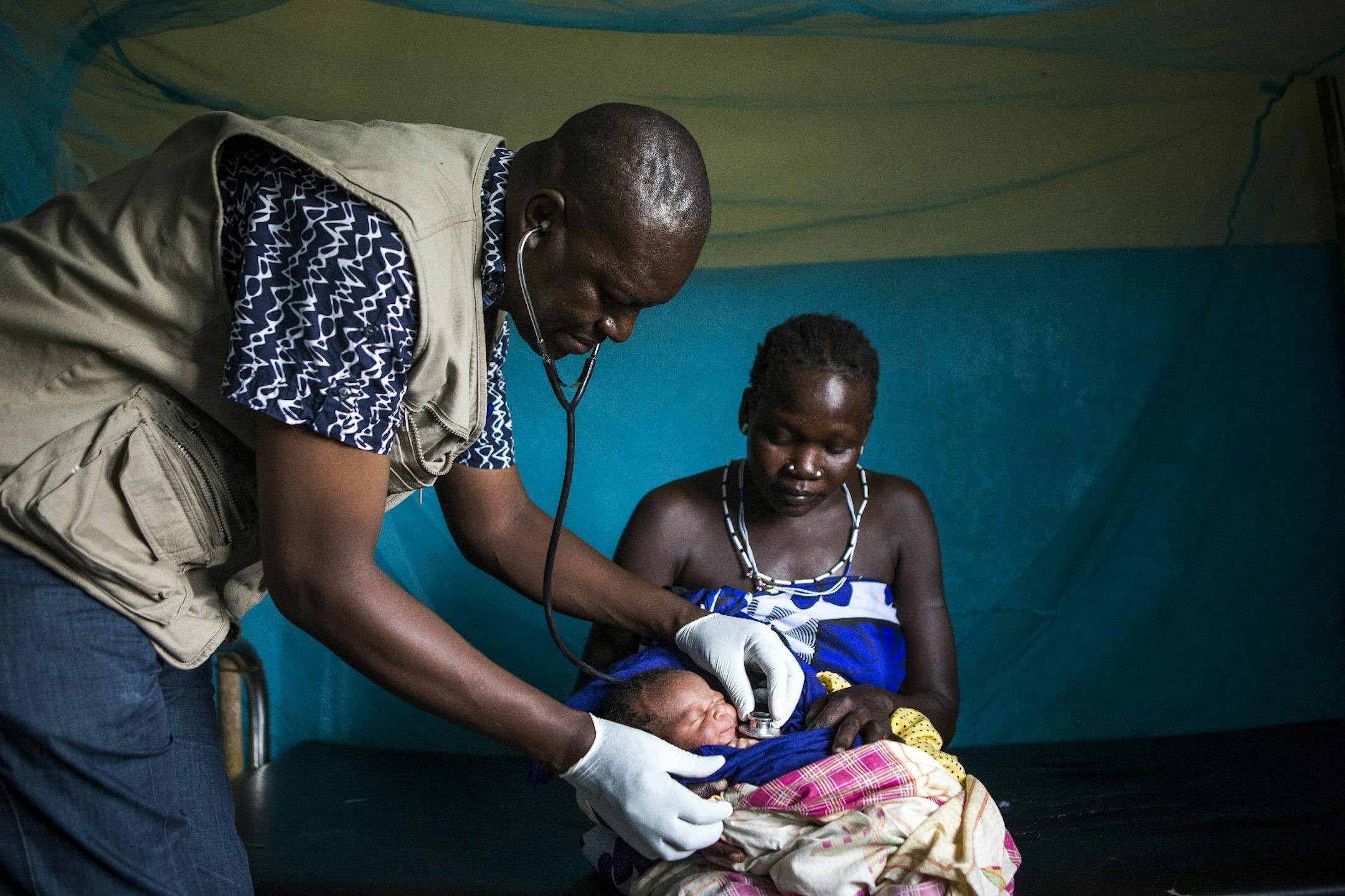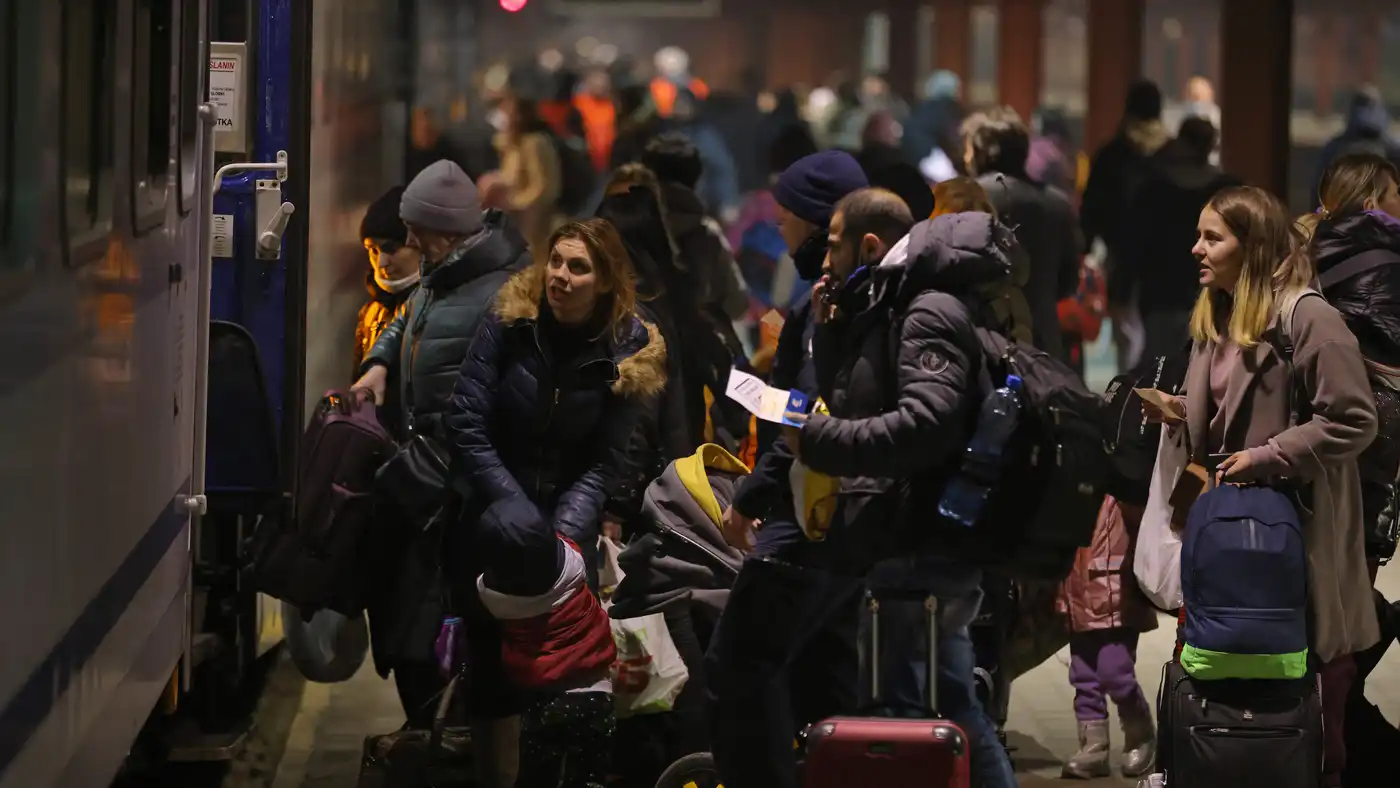John Schrager, an attorney in Minneapolis, can pinpoint the moment that he, his wife, Mary, and his daughters felt a true bond with the Ukrainian refugee family they are sponsoring. Less than two months into the arrangement, Schrager’s 17-year-old daughter received a text from the Ukrainian family’s 8-year-old girl. “Now I decide you are my cousin,” it read, in broken, Google-translated English. “John and Mary are my aunt and uncle. Because I love you very much.”
Now thousands more Americans will have a similar opportunity. The U.S. has launched the Welcome Corps, modeled on a Canadian system of resettlement that allows ordinary citizens to serve as private sponsors of incoming refugees, providing financial and moral support during the initial stages of their moves. Advocates say the model, now common in many developed countries including Australia and the U.K., will allow an increase in refugee admissions.
In the U.S., private sponsorship has its roots in smaller emergency programs established in recent years to welcome Afghan and Ukrainian refugees; in those programs, refugees and their sponsors have reported faster integration and a sense of fulfillment for the entire local community.









